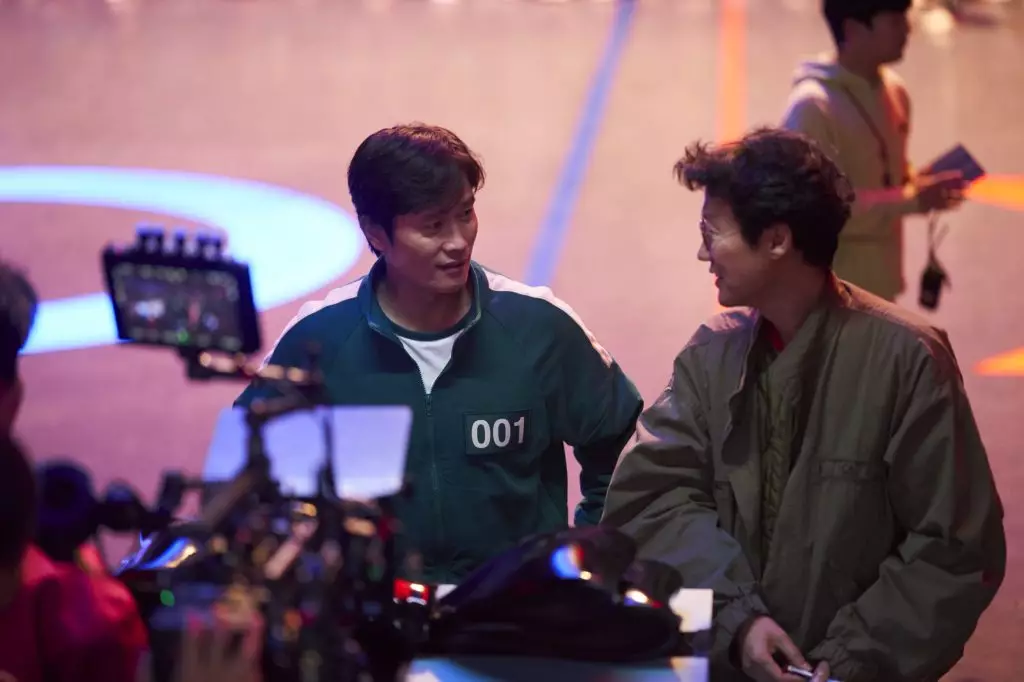The recently premiered Season 2 of “Squid Game” has been a significant turning point not only for the show’s narrative but also for veteran actor Lee Byung-hun, who presents a multi-faceted character this time around. Initially appearing as the enigmatic Front Man, Lee’s character In-ho has transitioned into a more layered role, as he sheds his mask to participate directly in the survival games as Player 001. This transition reflects the show’s continued exploration of identity, morality, and the blurred lines between good and evil.
Director Hwang Dong-hyuk’s decision to integrate In-ho’s backstory and juxtapose it against the returning character Gi-hun (portrayed by Lee Jung-jae) has enriched the series’ narrative fabric. What was once merely a supporting role has blossomed into a central narrative thread, woven intricately into the psychological and moral dilemmas faced by the players. Lee recounts his surprise upon reading the finalized script, indicating that the production team has taken the character in a drastically different direction than what he had initially anticipated. This dynamic shift showcases the creative risks that the writers were willing to take, aiming to keep the audience engaged in unpredictable ways.
Lee Byung-hun’s career has spanned across continents, transitioning from prominent roles in Korean cinema, such as in “A Bittersweet Life” and “Joint Security Area,” to his venture into Hollywood with movies like “G.I. Joe.” Despite his extensive Western experience, he poignantly notes that the moment he walked the red carpet at the Season 2 premiere felt profoundly different. Lee reflects on the essence of cultural pride and the exhilaration of promoting a project in his native language, surrounded by peers and fellow creatives from Korea.
This homecoming moment of celebration speaks volumes about the evolution of Asian cinema and its increasing prominence on global platforms like Netflix. As “Squid Game” continues to break viewership records, Lee’s realization acts as a hallmark of progress and recognition for Asian content in an industry previously dominated by Western narratives. His experiences in Hollywood, while invaluable, were contrasted by the sense of belonging and pride he felt at the premiere, illuminating a powerful narrative of identity and reconciliation with his roots.
“Squid Game” Season 2 has taken the world by storm, accumulating an impressive 165.7 million views within just weeks of its release, securing its place as Netflix’s second-most watched non-English show. The series’ success not only amplifies its cultural significance but also highlights the universal themes of human struggle, survival, and ethical dilemmas that resonate with audiences across different cultures. As Lee prepares for upcoming projects, including “No Other Choice” by renowned director Park Chan-wook, the impact of his work in “Squid Game” will undoubtedly reshape the trajectory of his career.
Moreover, the show’s focus on themes of rebellion and sacrifice, particularly illustrated through the character dynamics between In-ho and Gi-hun, serves to provoke thought about the moral complexities within the game. Lee’s portrayal of the Front Man grappling with his allegiance is not just a testament to his acting prowess but also a mirror reflecting the internal conflicts many face when caught between personal ambition and collective morality.
One of the most striking scenes that Lee emphasizes is the team meeting before the rebellion. This pivotal moment encapsulates the essence of the struggle among players—navigating personal sacrifice for a collective cause. The interaction between In-ho and Gi-hun is layered with tension, underscoring the gradual erosion of Gi-hun’s idealism, highlighted by In-ho’s slight yet meaningful smile. Through this nuanced performance, Lee illustrates the fragile dynamics of trust, loyalty, and the emotional stakes involved in their fateful choices.
As “Squid Game” evolves, it continues to engage audiences not just through suspenseful plotlines, but through profound character development and relationships that challenge conventional perceptions of heroism and villainy. Lee Byung-hun’s transformation from the aloof Front Man to Player 001 reflects this ongoing dialogue about the complexities of human nature, ultimately questioning what it means to win in a system designed for survival at any cost.

